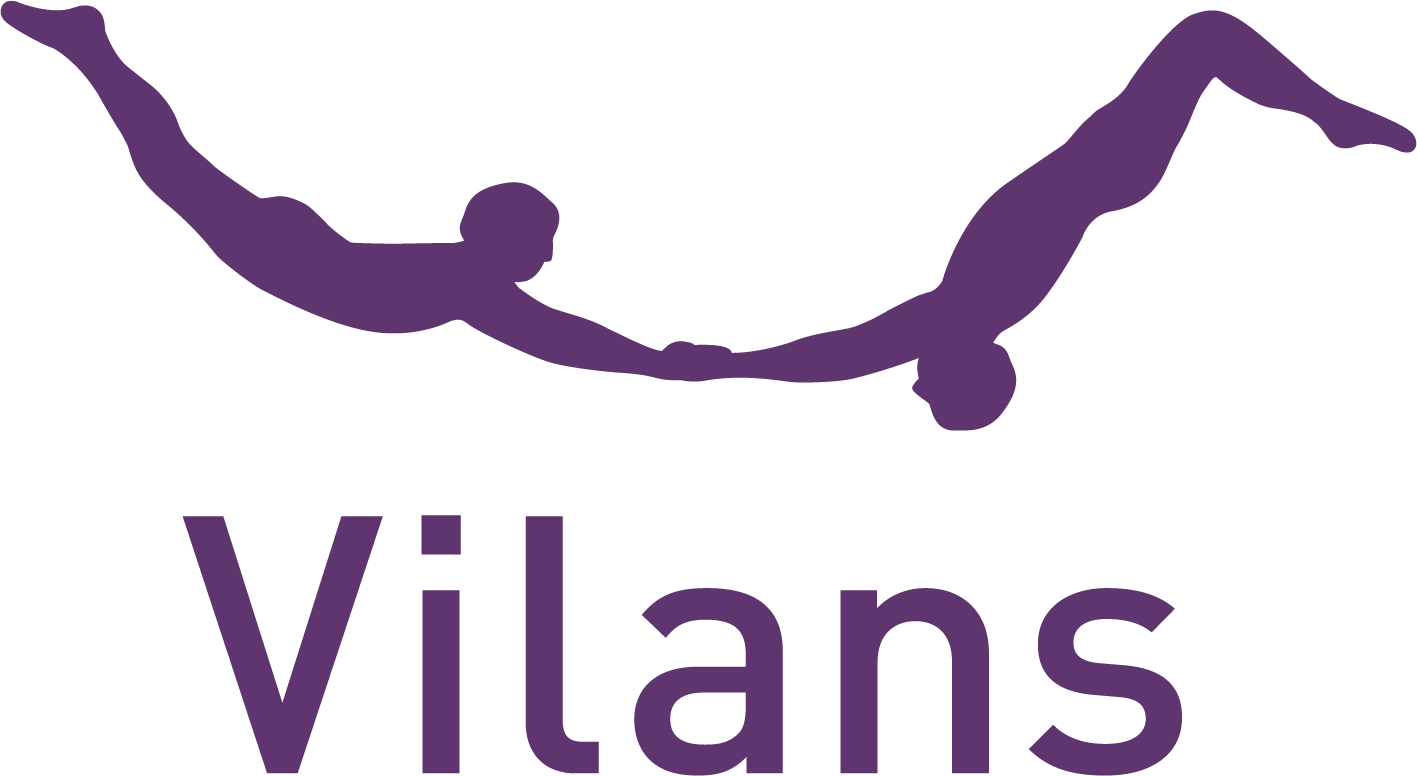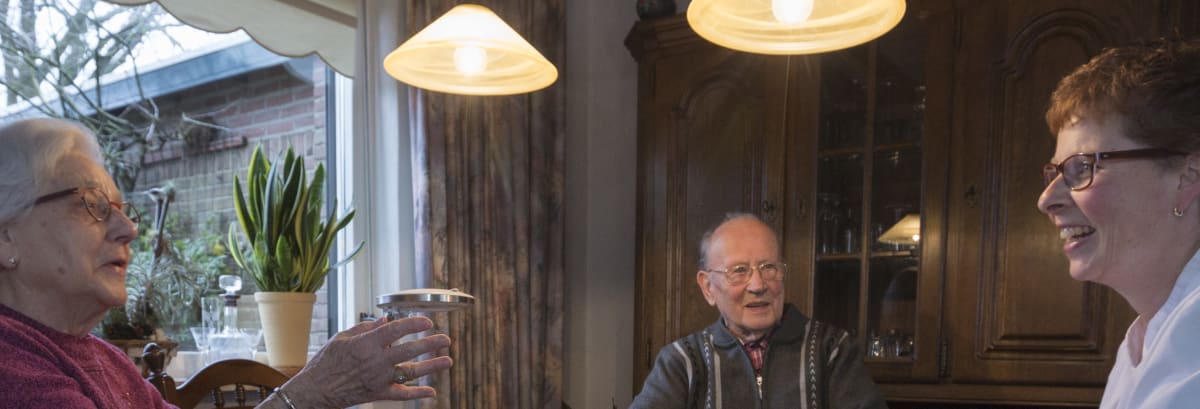Portrait Series Reablement: 'The workload exists precisely because we take over so much!'
Published on: 31-03-2025
Reablement focuses on strengthening the self-direction and self-reliance of older adults. But how can care professionals best support clients in regaining their independence? And how do you, as a caregiver, learn to work more 'with your hands behind your back'?
In this portrait series, we highlight care organizations practicing reablement. Today, we hear from a nurse in the Living with Care department at Careaz.
Why do you think it's important to focus on self-reliance?
'I’ve seen firsthand how people can become unhappier after moving into a nursing home. Caregivers have good intentions and want to provide care, but in doing so, they often unconsciously take over too much. By doing that, we deprive people of participating in society. They become stuck as individuals. As a result, residents lose control over their own lives. You begin to notice a decline, both mentally and physically. They lose interest in doing things for themselves.'
What inspires you to promote self-reliance?
'I was raised to believe that doing things for yourself is important. My father is 74 and my mother is 73, and both still live independently. Yet in healthcare, we often take over everything from people of that same age. I firmly believe that people can still grow, even when they’re 92. If someone manages to do one thing on their own, they might just be able to do another as well. I also started working in healthcare later in life. That gives me the advantage of a fresh perspective.'
What do you observe in daily practice?
'When a new resident arrives, I often see that everything is immediately taken over. The resident quickly gets used to this and adapts to the care. For example, if someone says, "Just raise your arm so I can wash your armpit," the resident complies. But when they first moved in, that person could make their own tea and wash themselves. After three weeks, they could no longer do those things.'
'I used this example to start a conversation with a colleague. She said she felt pressured by the workload and that taking over was quicker. To me, that’s all the more reason to look together at how we can do things differently. We’re so busy because we take over so much. Even if it takes more time initially, it’s worth doing things differently.'
Where do you start?
'I observe a lot in my work. For instance, if I enter a resident’s apartment and they say, "How nice of you to be here. Would you like some tea?" I make a point of sitting down at the table. Then something beautiful happens -the resident realizes, "Oh, I need to make the tea." In that moment, I’m there as a person, not just as a caregiver with a task list. I also think to myself, "If she can make tea, maybe she can do more for herself when showering." I discuss these observations with the resident and their family. That often leads to a conversation like, "Mother really wants to shower herself, but we’re worried about the risks. How should we handle this together?" These conversations support the shift toward self-reliance.'
How do you assess whether greater self-reliance is possible?
'Through observation and by looking at the type of independence a resident shows. For example, we have someone who needs help showering. I might say, "I see the towels aren’t ready yet. Shall I come back later?" And ten minutes later, everything is perfectly arranged. Sometimes you have to responsibly let go, even if there’s a small chance the resident might fall.'
What reactions do you get from family members?
'Thanks to reablement, one resident is now able to undress herself. Her daughters were quite critical at first because they were used to a different approach for five years. We started the conversation by asking how they felt things were going and how it might be done differently. We explained that their mother can manage on her own - and that it keeps her more active. Honestly, I’d love to hang a doorbell at every resident’s door, just so we can ring it and have the resident open it themselves.'
How do you foster reablement within your team?
'Some colleagues are skeptical and assume reablement is about cutbacks - like we’re simply allowed to do less. That’s why I emphasize, in team conversations, that self-reliance is important for a resident’s self-esteem. Talking about it as a team helps increase awareness. Together, we define what we mean by good care and support.'
'We also focus on small actions. For instance, there was a woman who received tea as part of the coffee round, even though she was capable of making it herself. We talked about it - and now she does it herself. I’d like to see those kinds of updates reflected in care plans. Right now, the care plan often states what needs to be done, but not by whom.'
'Most importantly, we need to realize that people can learn. Even when residents say they can’t do something - maybe because of an old injury like a broken arm - I involve a physiotherapist or occupational therapist to explore what’s still possible.'
How do you get colleagues thinking differently?
'I ask them how they would feel if everything was done for them. Or I use a reflective question like: "Suppose you manage to have every resident at the coffee table by 10 a.m. - is that really your goal, or is the real goal something else?"'
What steps are you taking moving forward?
'As a team, we keep reflecting on our own development. What are we running into? What could we be doing differently?'
'Take laundry, for example. Right now, all of the residents’ laundry is sorted and put away by staff. But why? Is the resident truly unable to do it? Could a family member help? We need to keep thinking in terms of possibilities - for every individual.'
What tips do you have for colleagues?
- Set up a working group: We started one called 'Elderly Care of the Future', with five colleagues discussing how we approach reablement and conduct motivational conversations with residents and families.
- Create a format for recording agreements with residents and families: When agreements about independence aren’t followed, this gives you something to refer to in the conversation.
- Listen, observe, and signal: What do daily activities mean to the resident, and what can they still do on their own?
- Evaluate everything you do. Ask yourself: Is the care I’m providing right now really necessary?
- Only take over if it’s truly necessary. Be aware of what self-reliance brings: When you take over everything, residents can quickly deteriorate.
About the Portrait Series
In the Portrait Series on Reablement, we take you along care organizations that translate reablement into their practice. Read from this series the interview with community nurses from Cicero Zorggroep, Careaz and ZuidOostZorg.
Contact
If you have any questions about this article, please contact Jeanny Engels, expert at Vilans.






